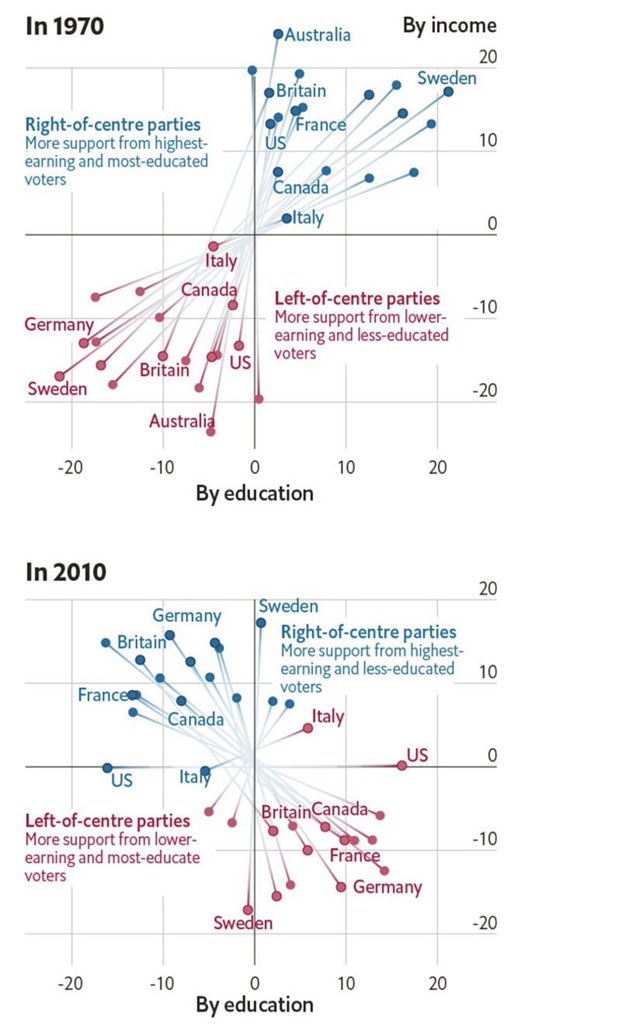
My new book thread 1/n
"How Social Science Got Better: Overcoming Bias with More Evidence, Diversity, & Self-Reflection" is now published & available in stores!
You can order with a 30% discount at Oxford with this code: ASFLYQ6
global.oup.com/academic/produ…
"How Social Science Got Better: Overcoming Bias with More Evidence, Diversity, & Self-Reflection" is now published & available in stores!
You can order with a 30% discount at Oxford with this code: ASFLYQ6
global.oup.com/academic/produ…
https://twitter.com/MattGrossmann/status/1430212468136202252

It was a privilege to delve into great progress being made across economics, psychology, sociology, political science, & anthropology & return to fundamental questions in the history & philosophy of science. Thanks @OUPAcademic & all those who helped.
2/n
2/n
https://twitter.com/OUPPolitics/status/1434952062521909254?s=20
It is more difficult (but not impossible) to reach consensus cumulative knowledge in social sciences, but that is due to the diversity of human experience & the complex, cross-level processes we study, rather than our methods. Social scientists recognize their uphill battle
3/n
3/n
Social scientists face a long list of biases, from unrepresentative researchers to imperfect scientific practices to endemic difficulties of studying ourselves. But they are longstanding & now better known, not worse; we are increasingly rigorous, relevant, & self-reflective
4/n
4/n

The reproducibility movement has highlighted both fundamental & procedural problems in social science & successfully reformed practice. But we are unlikely to agree on procedural standardization. Instead, we are learning that much research is exploratory & we need all kinds.
5/n
5/n

The empirical, causal inference, & big data revolutions are important for social science progress, but so is team science, interdisciplinary, & theoretical & methodological pluralism. Stark theory & methods dichotomies are in decline as new generations learn from all sides
6/n
6/n
The social sciences are slowly internationalizing & diversifying. That has brought new questions, evidence, & interpretations & drawn attention to how what we study is a product of who we are. But more diverse critics have systematized our studies, not simply critiqued them
7/n
7/n
Most social science occurs in universities, with all their faults, but there is not a crisis when it comes to producing more social science knowledge. Instead, the social sciences are stable, growing in applied fields, & never the main sources of university funding growth
8/n
8/n
Each discipline comes with its own biases & odd internal organization. But that does not necessitate starting over. Interdisciplinarity by decree doesn't work. But integration in applied fields, exporting established ideas from one field to another, & team science all do.
9/n
9/n
We are often interested in difficult-to-answer questions with individual & social determinants over different time scales. Some progress comes from humility; we no longer see findings as temporally or geographically universal & we are no longer sticklers for individualism
10/n
10/n

All social science draws from history (our available data) & potential applications (our aspirations for change). We need to recognize the political unrepresentativeness that guides goals & our history of overpromising & social engineering. But practice also helps us learn
11/n
11/n
Popularization is a common source of misunderstanding, but it is an opportunity to clarify disagreements, pare down overbroad claims, & bring practitioners & synthesizers into the assessment of evidence. Popular conversations advance research, but take time to congeal.
12/n
12/n
Most social scientists share my many reasons for optimism, but also cite (somewhat contradictory) reasons for pessimism. Many of the problems have been with us from the beginning.
We have a long way to go, but should be excited about the direction of our fields.
13/n

We have a long way to go, but should be excited about the direction of our fields.
13/n


How Social Science Got Better
You can read it instantly:
Or order your copy today:
global.oup.com/academic/produ…
I welcome your thoughts.
14/14
You can read it instantly:
https://twitter.com/MattGrossmann/status/1431279371638042630?s=20
Or order your copy today:
global.oup.com/academic/produ…
I welcome your thoughts.
14/14
You can also hear a hopefully enlightening discussion on the book & the state of social science on a recent podcast:
https://twitter.com/MattGrossmann/status/1433585848583397378
• • •
Missing some Tweet in this thread? You can try to
force a refresh







